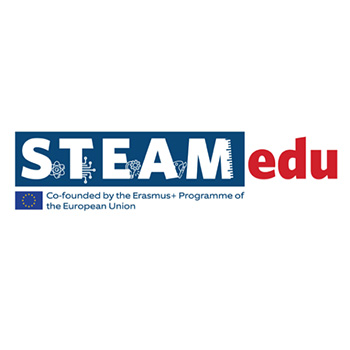STEAMedu

MSc course in STEAM education - STEAMedu
Erasmus+ KA2 CBHE
618996-EPP-1-2020-1-BA-EPPKA2-CBHE-JP
01/2021 – 01/2024 (36 months)
998.813 €
Bosnia and Herzegovina, Albania, Kosovo, Greece, Cyprus
Visit the Project's Website
Follow the project on Social Media
STEAMedu
Occupations of the future have been changing rapidly, and the knowledge and skills acquired today may not be enough while preparing our students for life. Studies funded by the European Commission have highlighted important issues regarding STEM in education systems, including the low attractiveness of studies and careers in STEM areas. It is also reported that there are unmet labor market needs in these areas that are expected to grow in the future (European Schoolnet, 2018). STEM careers are considered as ‘the job’ of the future; the European Parliament forecasts around 7 million new STEM jobs by 2025 (Education 2030 Unesco, 2017). This skills gap between future jobs and STEM candidates is alarming in many Balkan countries. In the Western Balkans, by 2015, half of students on average, enroll in Humanities and Social Science Subjects, while 24% enroll in STEM subjects. Based on survey results with Balkans graduates (Osbild & Bartlett, 2019), graduates in the Western Balkans are only moderately satisfied with the quality of higher education they receive. Many graduates consider that their job prospects would have been improved by better teaching methods, by more relevant curriculum and by having better qualified professors. Among graduates who studied ICT, as many as 30% are underqualified in relation to the skills needed by their jobs. This is a worrying finding, suggesting that HE systems fail to impart the skills needed in a key field contributing to high value-added employment. Due to the importance of individual preparation to work in the technologically advanced world, there has been a growing interest in STE(A)M education over the past years. A move from STEM education where subjects are taught in silos with focus on scientific concepts to a STE(A)M approach in teaching and learning where concepts are investigated through interaction between STEM and non-STEM subjects and links to economic, environmental and social challenges is important to increase young people’s interest and motivation to study STEM subjects and to choose STEM careers and produce a workforce that is capable of tackling complex challenges through creative and interdisciplinary approaches.
Objectives of the project
Develop new specialized curriculum and an innovative MSc programme on STE(A)M education thus helping build the capacity of the partner countries’ HEIs, improve the level of competences and skills offered, and address the existing absence of similar programmes.
Establish viable synergies and links with the STEM and non-STEM HEIs departments in order to address the current gap in the region for a specialised MSc programme in STE(A)M education, thus providing the educational community with a steady stream of highly qualified educators of all the levels of education.
- Reinforce the infrastructure of the Partner Counties’ HEIs by establishing STE(A)M
Laboratories that will act as foci for research and innovation in the area thus
ensuring that STE(A)M education will remain high in the regional priorities
agenda for a long time after the project has been completed. - Reinforce the capacity of the Partner Countries’ HEIs by training their academic staff in the new courses and appropriate delivery methods. This will be achieved by
developing a training virtual learning environment to support the Partner
Countries HEIs’ academic staff during and after the project. - Stimulate greater human connectivity through the exchange of students and staff, which is enabled through global and regional networks, and consortium of higher education institutions. Promote cooperation, exchange of know-how and good practices in the subject area between EU and PC HEIs.
- Creation of Alumni virtual centres and organizing info days for STE(A)M education.
Expected Main Results
The results described below derive from all project activities.
- The project outputs – namely the MSc Curriculum in STE(A)M education will directly benefit the HEIs but shall also have a wider and further impact on students, academic and administrative staff, schools, policy makers and HE and business organisations in the target countries.
European University partners and organisations and their members will also be impacted. - The advanced, multidisciplinary-focused curricula of the programmes will bring together the Science and Arts disciplines to share knowledge, practices and to test processes to find innovative ways to takes STEM to the next level. The STE(A)M approach will allow students to connect their learning in these critical areas together with arts practices, elements, design principles, and standards to provide the whole pallet of learning at their disposal.
- STEAM removes limitations and replaces them with wonder, critique, inquiry, and innovation. It also helps advancing the theory and practice in STE(A)M related topics through high quality research and learning by creating both STE(A)M
Labs and specific educational material and additional resources for STEAM
education. - In BiH, an additional need is STE(A)M capacity building by university staff and resources. This need will be met by the several project outputs. The MSc in STE(A)M education will have a positive impact at University level as it will enlarge the number of the programs offered by BiH Universities.
- This new MSc in STE(A)M education will enhance Albania’s two main needs related to the approaches between students and teachers, and to promote innovative and
cross-disciplinary approaches to STEAM in order Albanian graduates be more
competitive in STEAM subjects compared to their foreign graduates. - The Kosovo Educational and manufacturing sector will benefit from the expected results through the creation of new opportunities for innovation and growth. Data gathered through multidisciplinary HEIs faculties can enable a deeper understanding of the required reform of future education.
Project Activities
WP1 Identification of similar curricula and needs assessment in the subject area
A1.1 Identification of similar curricula in the Balkans: HEIs in the Western Balkans will have to identify similar programmes from their countries and the wider region in order to identify the gaps and better assess the exact academic needs that have to be catered for by STEAMedu.
A1.2 Identification of similar curricula in Europe: European HEIs will have to identify similar MSc programmes from Europe. This will be done so that the various formats and curricula offered on the subject area as well as relevant best practices can be taken into account when developing the STEAMedu MSc programme.
A1.3 Identification of existing professional training courses in the subject area and demand for internships in the partner countries: A reporting template will be developed by P16 and sent to all HEIs in the Western Balkans so that they can report their existing professional training courses as well as their regions’ needs in terms of required professional skills in the field.
A1.4 Compilation of final report: A comprehensive report will be compiled using the input from the preceding three activities into a comprehensive report that can be readily used in the three core development WPs.
WP2 Development of the STEAMedu MSc Curriculum & VLE
A2.1 Study visits to Europe for Curricula Development: In this activity, 4 academic professionals from each Western Balkan HEI will travel to Europe to witness the teaching process, course and lab setup and other operational issues of the relevant MSc degrees offered in HOU and UCY. Parallel to that, these study visits will be the first important step for the development of the new curriculum as the partners will be asked to exchange ideas, discuss their vision of what will the new programme include, and agree on a broad structure.
A2.2 Development of STEAMedu VLE: The objective of the STEAMedu VLE is to create an e-learning platform which will allow the collaborative interaction between the academic staff from all partners through both learning and assessment activities. It will also be the space were the training material and digital contents will be available and a community of its current and potential users and other stakeholders.
A2.3 Curriculum development: The proposed MSc programme will be a holistic and integrated approach to quality education and life-long learning in STEAMedu. In addition, each Western Balkan partner HEI will develop 1 new professional course tailor made to the training needs of the teachers and special characteristics of their region.
WP3 Development of educational material, labs infrastructure & Capacity building
A3.1. Development of STEAMedu learning material: In the framework of this activity, EU HEIs and Western Balkan HEIs will co-develop the syllabi and learning material for the STEAM MSc programme & STEAMedu professional/VET courses.
A3.2. Capacity building of Western Balkan HEI staff: This activity will involve, three intensive training workshops in each of the Western Balkan partner countries for a) teaching staff intended to deliver the academic programme, b) scientific and technical staff intended to produce and “run” the MOOC and c) administrative staff intended to administer the delivery of the programme.
A3.3. Setup of equipment and establishment of “STEAMedu Labs” in Partner Countries: Establishment of a “STEAMedu Lab” in each partner institution to run MSc programmes and vocational training courses on “STEAMedu”. The acquired equipment will be installed in these centers ready to be used for the delivery of the programme in WP4 and for research and networking purposes during and after the project.
A3.4 Planning of internship programme in partner countries: The purpose is to prepare the ground so that everything has been set up for the internship component of the MSc programme.
WP4 Accreditation and delivery of the STEAM MSc Programme
A4.1 Accreditation of the STEAM MSc Programme: During this activity, the accreditation of the proposed programme will take place. Each university running the program will be responsible for taking the steps to accredit the Master course.
A4.2 Delivery of the STEAM MSc Programme: This activity refers to the delivery of the STEAM MSc Programme.
Project Partners
- University of Mostar – BiH – Lead Partner
- Dzemal Bijedic University of Mostar - BiH
- University of Bihac - BiH
- University of Tirana - Albania
- European University of Tirana -Albania
- University of Vlora - Albania
- University of Shkodra - Albania
- University of Korca - Albania
- University of Pristina - Kosovo
- Kadri Zeka University - Kosovo
- University for Business & technology - Kosovo
- Universum College - Kosovo
- Hellenic Open University - Greece
- University of Nicosia - Cyprus
- Metropolitan College - Greece
- Centre for Social Innovation - Cyprus
- Skybridge Partners Outsourcing IKE - Greece


